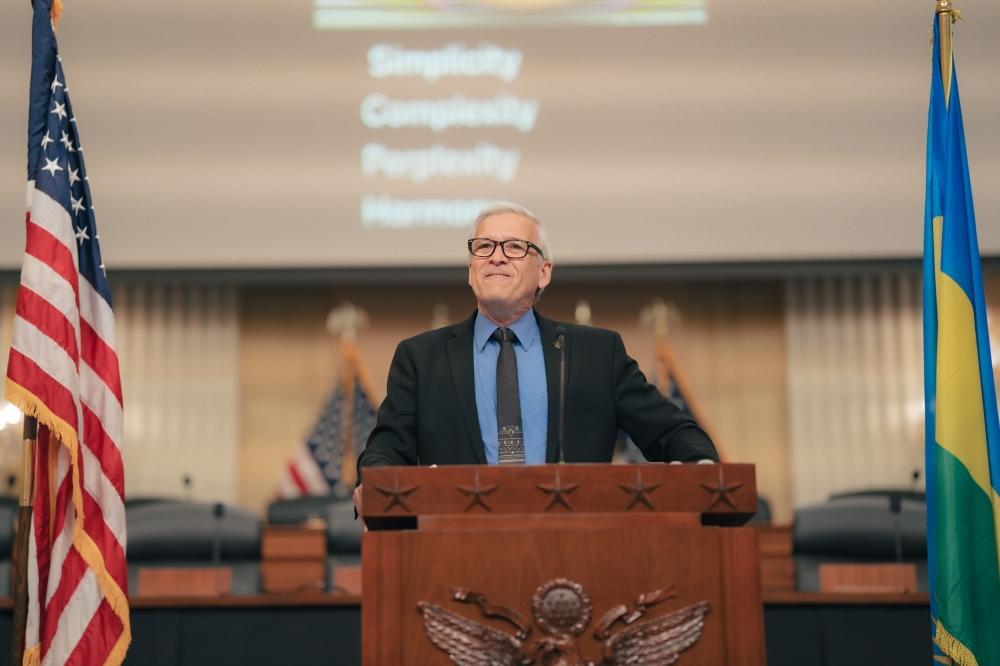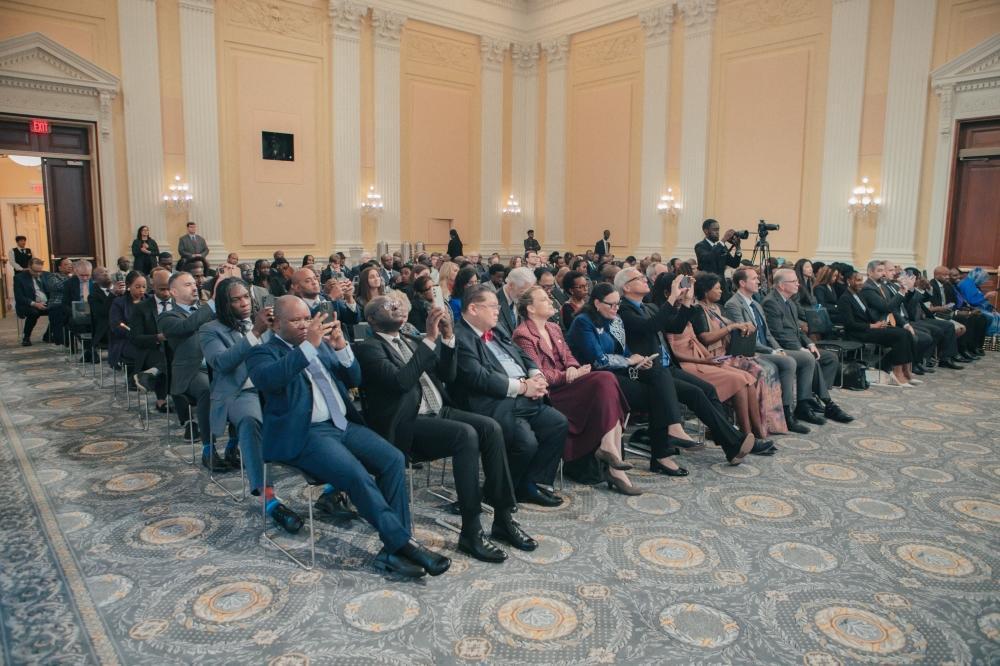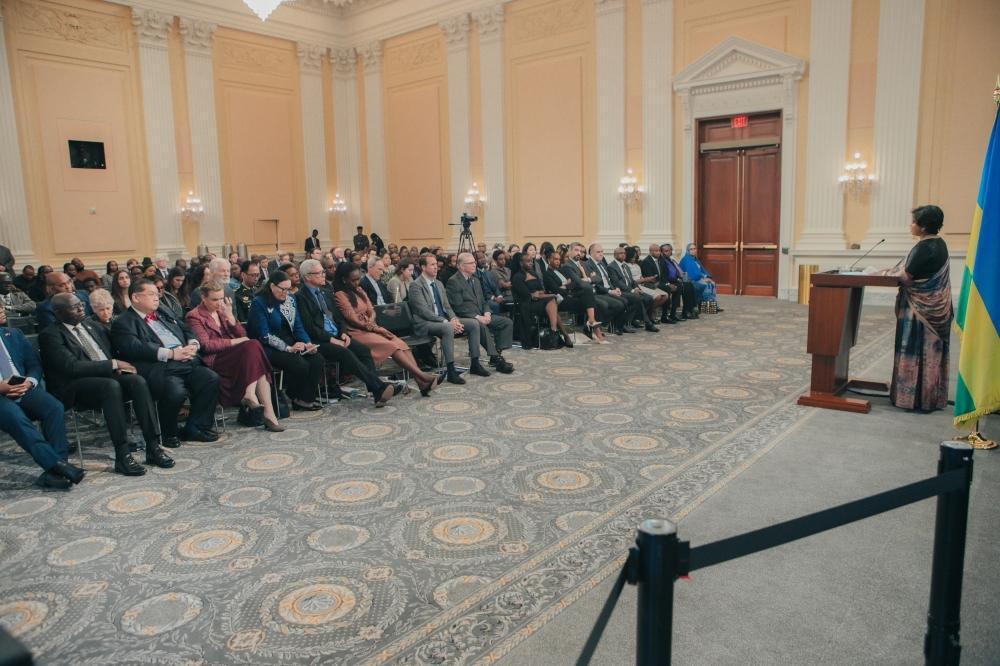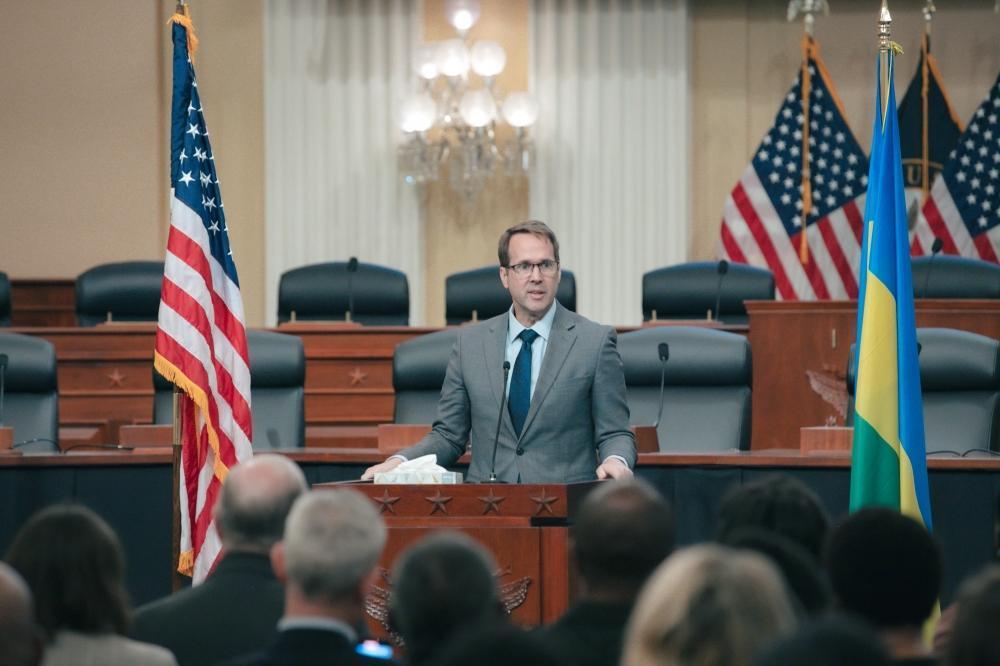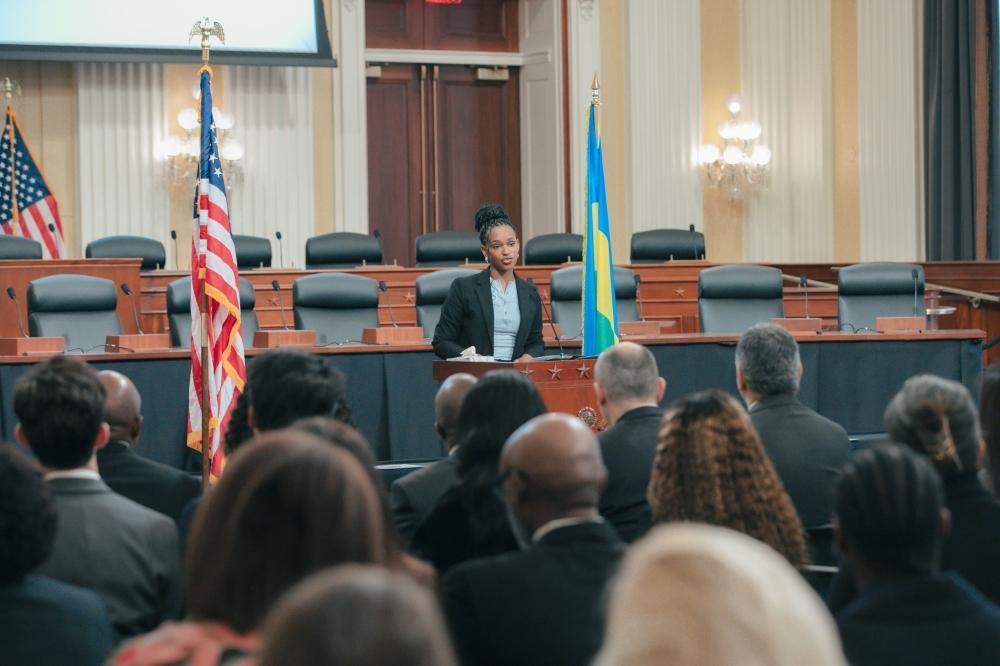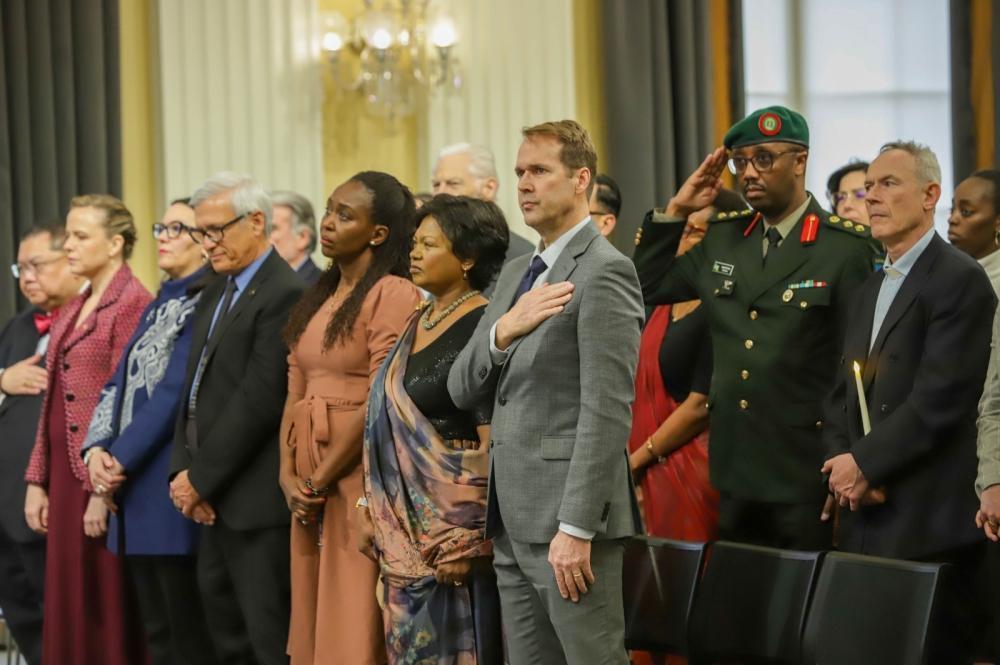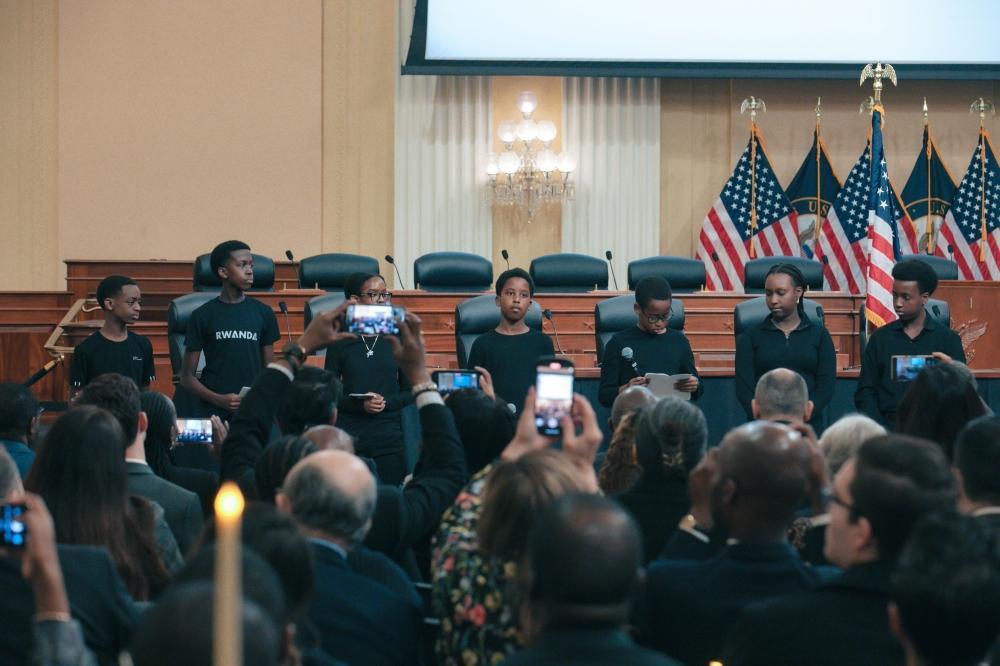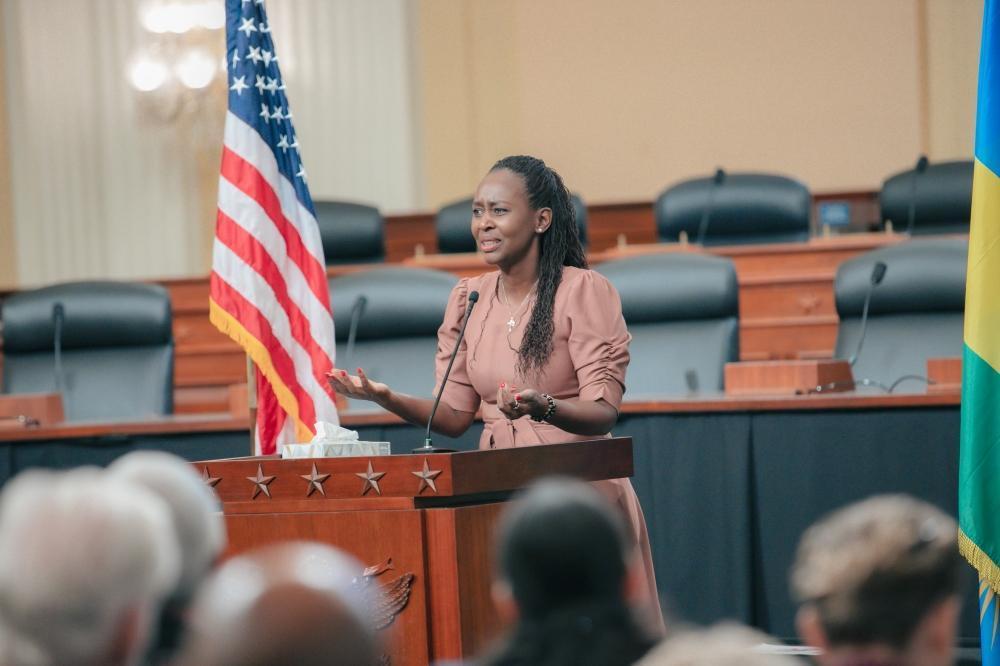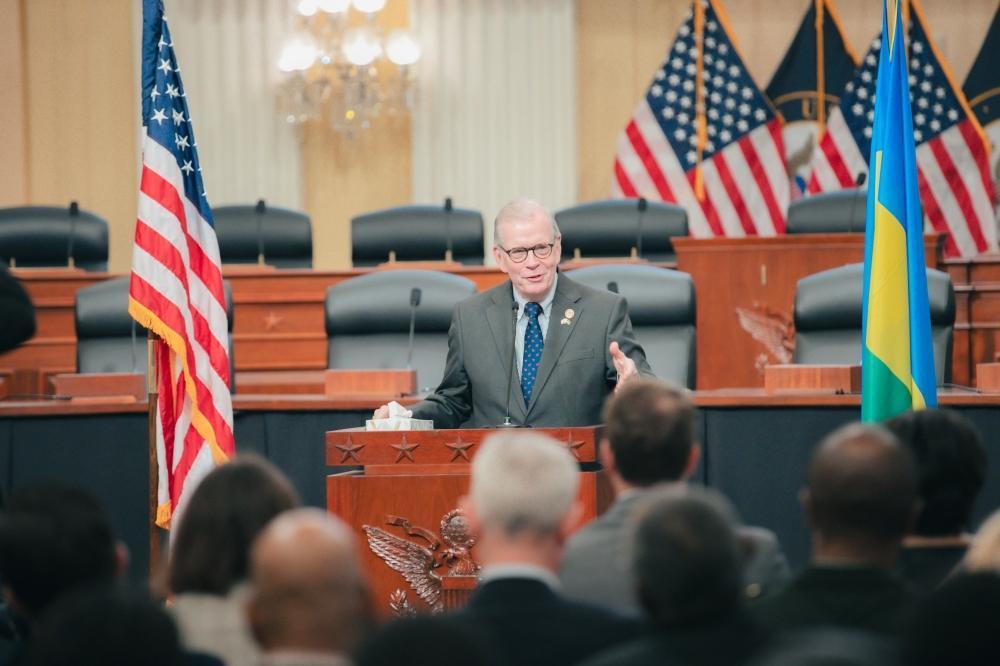Africa-Press – Rwanda. Carl Wilkens, the American missionary who chose to stay in Rwanda during the 1994 Genocide against the Tutsi, has praised Rwanda’s homegrown approaches to justice and healing such as the gacaca courts, in reconciling a deeply divided nation.
These community-based courts were established to address the crimes committed during the 1994 Genocide against the Tutsi. The gacaca courts system officially concluded in 2012 after processing over 1.9 million genocide-related cases over the course of 10 years.
Rather than relying solely on the formal justice system, the traditional courts involved local communities in the process of justice, allowing perpetrators to confess their crimes, ask for forgiveness, and make reparations.
Wilkens, who praised the system while in Washington, DC, during the 31st commemoration of the Genocide, on April 7, was a missionary living in Rwanda in 1994 when the Genocide against the Tutsi began.
The commemoration event, held on Capitol Hill, gathered over 200 guests, including members of the diplomatic corps, the U.S. Congress, academia, media, the Rwandan community, and friends of Rwanda.
When all of Wilkens’ colleagues were evacuated, he refused to leave and chose to stay and save lives.
He ended up saving an estimated 400 Tutsi at the Gisimba orphanage in the Nyamirambo suburb of Kigali. In the aftermath, he wrote a book titled “I’m Not Leaving.”
At the time of the genocide, Wilkens was the head of the Adventist Development and Relief Agency in Kigali.
He commended Rwanda’s progress in rebuilding unity through community-based efforts, stating:
“The model of gacaca and the community courts, and unpacking the harm, then working to repair the harm… people working in the community, not to pay back, because you can’t pay back for killing.
The commemoration event, held on Capitol Hill, gathered over 200 guests
“But people working in the community to show they’re more than the worst thing they’ve done. They’re more than murderers or rapists. The people of Rwanda have shown me they are very serious. We can actually change.”
Ambassador Troy Fitrell, representing the U.S. Department of State, reaffirmed America’s support for Rwanda’s pursuit of justice and cautioned against the dangers of hate speech and genocide denial.
“We oppose any attempt to misrepresent the historical record for political purposes. In particular, we strongly oppose any denial or minimisation of the genocide that targeted Tutsi. We urge those who employ hateful rhetoric today to consider the power of their words and use them to promote peace rather than fuel violence and hate.”
Genocide survivor and author Immaculée Ilibagiza shared a testimony of survival, underscoring the power of forgiveness and the need for love in the face of unimaginable atrocities.
Rwanda’s Ambassador to the United States, Mathilde Mukantabana delivers her remarks
“Ever since I survived the 1994 Genocide against the Tutsi, I’ve had the courage to remind people that hatred is dangerous… I witnessed what the absence of love can lead to—people killing their neighbours, chopping them, and torturing them before taking their lives. That’s what led to the 1994 Genocide against the Tutsi. That’s where segregation stemmed from,” she testified.
Nicole Karekezi, representing Ibuka-US, echoed the call for accurate acknowledgment of the genocide, stressing the importance of language in preserving historical truth and dignity for victims.
“Please formally recognise the 1994 Genocide against the Tutsi by name, just as the United Nations has already done. Not as the random genocide, not as ethnic violence, not as a tragedy in Africa, not as a genocide that killed the Tutsi, Hutu, and Twa, because that erases the truth and opens our wounds.”
Rwanda’s Ambassador to the United States, Mathilde Mukantabana, and urged global solidarity in remembrance efforts. She emphasised that genocide commemoration should not rest solely on the shoulders of survivors but must be embraced as a shared global responsibility.
Congressman Tim Welberg highlighted Rwanda’s transformation as a beacon of hope and reconciliation, lauding the country’s resilience and spiritual strength in the wake of tragedy.
“The genocide was an attempt to rid the world of the Tutsi, but the grace was a divine enablement, ultimately, to forgive and restore. I thank God for an example that comes from a country like Rwanda. I thank God that it comes without anything hidden.”
Commemorative events will continue across the United States in Rwandan communities and educational institutions, aiming to educate, remember, and reaffirm the collective pledge of “Never Again.”
Ambassador Troy Fitrell, representing the U.S. Department of State, reaffirmed America’s support for Rwanda’s pursuit of justice and cautioned against the dangers of hate speech and genocide denial.
Mourners observe a moment of silence to honour victims of the Genocide against the Tutsi on Capitol Hill in Washington DC on Monday, April 7
Genocide survivor and author Immaculée Ilibagiza shared a testimony of survival,
For More News And Analysis About Rwanda Follow Africa-Press

